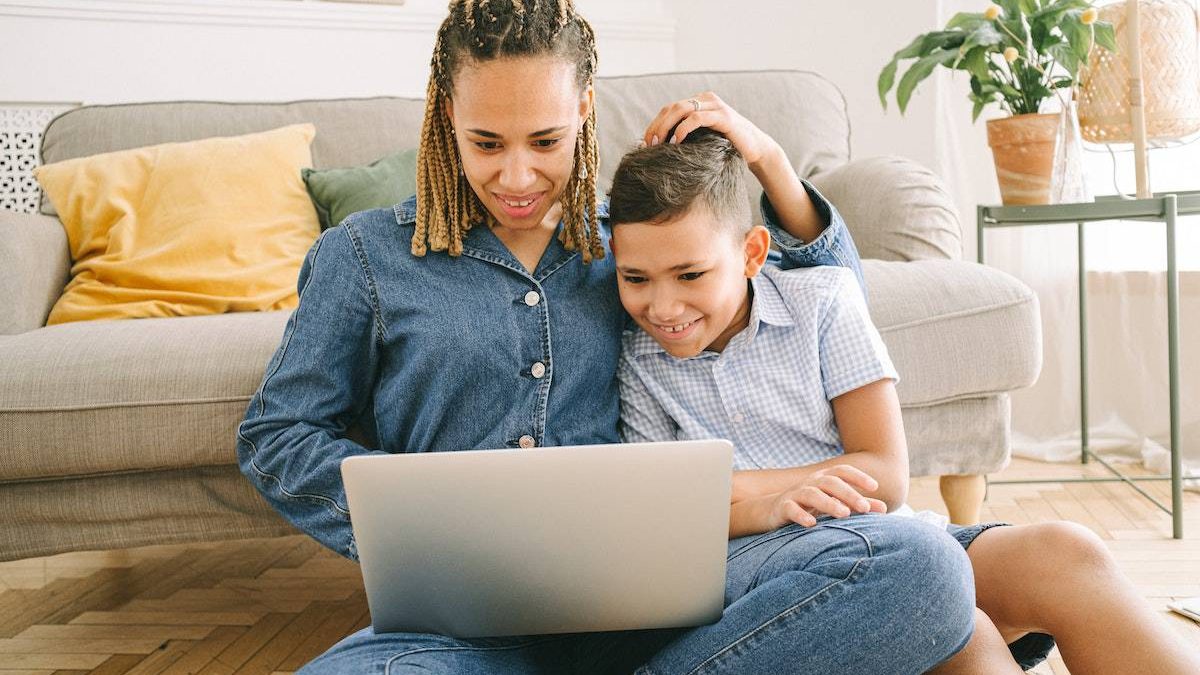In today’s digital age, the internet has become an integral part of our lives, offering a wealth of information and entertainment. However, it also presents potential risks, particularly when it comes to exposing children to inappropriate content. This is where parental controls like the eyeZy spy app, Bark, Aura, and mSpy play a crucial role in ensuring a safer online experience for young users. In this article, we will delve into the effectiveness of parental controls in filtering inappropriate content and discuss their benefits and limitations.
Table of Contents
Understanding Parental Controls
Parental controls refer to a range of tools and features designed to enable parents or guardians to manage and monitor their children’s online activities. These controls allow them to set restrictions and filter content based on various parameters, such as age appropriateness, categories, and specific websites or applications.
Benefits of Parental Controls
Shielding Children from Inappropriate Content: Parental controls act as a first line of defense against explicit material, violence, and other potentially harmful content. By filtering out inappropriate material, these controls help protect children from exposure to content that may be psychologically or emotionally damaging.
Age-Appropriate Access: Parental controls allow parents to set age restrictions, ensuring that their children can only access content suitable for their maturity level. This feature helps prevent exposure to content that may not be appropriate for younger users, such as explicit language, violence, or adult themes.
Online Safety: Parental controls offer safeguards against online predators and cyberbullying by monitoring and limiting social media interactions, blocking suspicious websites, and filtering out harmful communication. These controls provide parents with peace of mind, knowing that their children are navigating the digital world more safely.
Regulating Screen Time: Excessive screen time has become a concern for many parents. Parental control tools often include features that allow parents to set time limits for device usage, promoting healthier habits and preventing addiction to screens.
Limitations and Challenges
Technological Limitations: Parental controls are not foolproof and may have limitations in terms of accuracy and effectiveness. Some inappropriate content may slip through the filters, especially as new content is constantly being generated. However, continual updates and improvements in filtering algorithms aim to minimize these occurrences.
Overblocking: Sometimes, parental controls may overblock or mistakenly categorize content as inappropriate, leading to false positives. This can be frustrating for both parents and children when legitimate websites or educational resources are blocked. Regular monitoring and fine-tuning of filters can help mitigate this issue.
User Familiarity: Parental controls often require technical knowledge to set up and customize properly. Some parents may find it challenging to navigate the complex settings and features, leading to underutilization or improper configuration of the controls. User-friendly interfaces and clear documentation can help address this challenge.
Circumvention by Tech-Savvy Children: Older children, particularly teenagers, may possess the technical know-how to bypass or disable parental controls. It is essential for parents to maintain open lines of communication with their children about responsible internet use and the reasons behind using parental controls.
Maximizing the Effectiveness of Parental Controls
Open Communication: Parental controls should not replace open and honest conversations about online safety. Engage in ongoing discussions with your children, educating them about the potential dangers of the internet and the importance of responsible digital behavior.
Regular Monitoring: Keep track of your child’s online activities and adjust parental control settings as necessary. Regularly review the effectiveness of the filters and make any necessary modifications to ensure they align with your child’s needs and developmental stage.
Combined Approaches: Parental controls work best when combined with other strategies, such as educating children about online risks, promoting media literacy, and establishing boundaries for device usage. A holistic approach that encompasses parental controls alongside open communication and education empowers children to make informed decisions and navigate the online world responsibly.
Stay Informed: Keep yourself updated on the latest trends, platforms, and applications that your children are using. This knowledge will help you make informed decisions when setting up parental controls and understanding potential risks associated with specific online activities.
Customization and Flexibility: Parental control software often provides customizable settings that allow you to tailor restrictions to your child’s specific needs. Adjust the filters based on their age, interests, and maturity level. Stay flexible and adapt the controls as your child grows and their internet usage patterns evolve.
Positive Reinforcement: Instead of solely relying on restrictions, focus on reinforcing positive online behavior. Encourage your children to explore safe and educational content, engage in creative activities, and use the internet as a tool for learning and growth. Praise them for responsible digital behavior and reinforce the importance of making wise choices online.
Parental Involvement: Actively engage in your child’s online journey by exploring websites, apps, and games together. By sharing their digital experiences, you can gain insights into their interests and identify any potential red flags or areas where additional guidance may be required.
Final Thoughts
Parental controls serve as a valuable tool in protecting children from inappropriate content and ensuring a safer online experience. While they are not without limitations, when used in combination with open communication, education, and active involvement, parental controls can be highly effective in filtering out harmful material and fostering responsible digital citizenship.
Remember, parental controls are not a substitute for parental guidance and communication. They should be seen as one part of a comprehensive approach to online safety. By understanding the benefits and limitations of parental controls and employing best practices, we can empower our children to explore the digital world while minimizing exposure to inappropriate content. Together, let us create a safer and more secure online environment for the younger generation.

